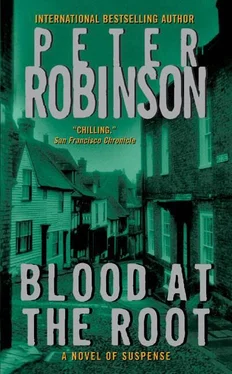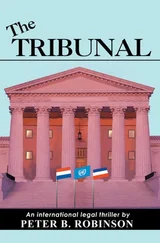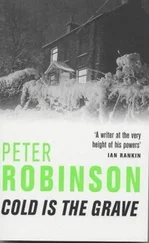She paused and took a sip of cold tea to soothe her stomach. The Lloyd Webber had finished ages ago and she had been too absorbed to go into the living room and put something else on. Though she hadn’t actually learned much more about the Albion League and its members from the Web page, she had learned enough to make her question how she felt about freedom of speech. These people would claim all attempts to silence them violated their basic democratic freedom. Yet given any power at all, they would silence everyone but straight white males.
At the end of the league’s page, Susan found, as with many sites, a hypertext link to the page’s designers. In this case, the name was “Fox Wood Designs.”
Curious, Susan clicked on the name. Again she was disappointed. She had expected names and addresses, but all she got was a stylized graphic image of a fox peering out from some dark trees, along with an E-mail address.
Still, she thought, as she made a note of the address, there was a slight chance that if one half of the team was Mr. Fox, then the other half was Mr. Wood. And if she could track down Mr. Wood, then she might just find one person who knew something about Jason Fox’s life. And his death.
As soon as Susan hung up her modem, the telephone rang.
It was Gavin.
“Susan? Where’ve you been? I’ve been trying to phone you all morning. I bumped into Jim Hatchley in the station and he told me you were working at home.”
“That’s right,” Susan said. “What do you want?”
“Charming. And I was going to invite you to lunch.”
“Lunch?”
“Yes. You know, that stuff you eat to keep you alive.”
“I don’t know…” said Susan.
“Oh, come on. Even a hardworking DC needs a spot of lunch now and then, surely?”
Come to think of it, Susan was hungry. “Half an hour?”
“If that’s all you can spare me.”
“It is.”
“Then I’ll take it.”
“And you’re paying?”
“I’m paying.”
Susan grinned to herself. “Right. See you at the Hope and Anchor in ten minutes.”
The old greengrocer’s turned out to be a former corner shop at the end of a street of back-to-backs between Holbeck Moor and Elland Road. The windows were boarded with plywood, on which various obscenities, swastikas and racist slogans had been spray-painted. Drizzle suited the scene perfectly, streaking the soot-covered red brick and the faded sign over the door that read ARTHUR GELDERD: GREENGROCER.
Banks wondered what Arthur Gelderd, Greengrocer, would have thought if he knew what had become of his shop. Like Frank Hepplethwaite, Arthur Gelderd had probably fought against Hitler in the war. And forty years or more ago, before the supermarkets, this place would have been one of the local neighborhood meeting places, and a center of gossip; it would also have provided Gelderd and his family with a modest living. Now it was the headquarters of the Albion League.
Banks and Hatchley looked the building over in the slanting drizzle for a moment. Cars hissed by on Ingram Road, splashing up dirty rainwater from the gutters. The window in the shop door was protected by wire mesh, and the glass itself was covered with old adverts for Omo and Lucozade, so you couldn’t see inside. In the center was a cardboard clock face to show the time the shop would next be open. It was set at nine o’clock, and it would probably be set at that time forever.
Sergeant Hatchley knocked with his hamlike fist; the door rattled in its frame, but no one answered. He tried the handle, but the place was locked. In the silence after the knocking, Banks thought he heard a sound inside.
“What do we do?” Hatchley asked.
“Knock again.”
Hatchley did so. Harder this time.
It did the trick. A voice from behind the door shouted, “What do you want?”
“Police,” said Banks. “Open up.”
They heard someone remove a chain and turn a key in a lock, then the door opened.
For some reason, the new occupants hadn’t removed the bell that hung on its pliant arc of metal at the back of the door, and it jangled as Banks and Hatchley walked in. The sound reminded Banks of childhood errands to his local corner shop, the way he used to watch, hypnotized, as Mrs. Bray turned the handle on the machine and the bacon swung back and forth in the slicer, making a whooshing sound every time the whirling wheel blade carved off a slice; he remembered the smoky smell of the cured meat in the air, mingled with fresh bread and apples.
What he smelled when he walked in now soon put such nostalgia out of his mind – burned carbon from the photocopier and laser printer, recent paint, smoke and fresh-cut paper.
The place didn’t even resemble a shop anymore. What must have been the counter was covered with stacks of paper – more copies of the flyer, by the looks of it – and a computer hummed on a desk beside a telephone. On the walls were a framed poster of Adolf Hitler in full spate, addressing one of the Nuremberg rallies, by the look of it, and a large image of a swastika made out of burning arrows.
A short young man with lank black hair, antique National Health glasses and a spotty face shut the door behind them. “Always happy to help the local police,” he said with a stupid grin. “We’re on the same side, we are.”
“Fuck off, sonny,” said Banks. “What’s your name?”
The young man blinked at the insult and stepped back a pace. “There’s no need-”
“Name?” Banks repeated as he and Hatchley advanced, backing the young man up against the counter.
The kid held his hands up. “All right, all right. Don’t hit me. It’s Des. Des Parker.”
“We’re just going to have a little look around, Des, if that’s all right with you,” Banks said.
Des frowned. “Don’t you need a search warrant? I mean, I know my rights.”
Banks stopped and raised his eyebrows. He looked at Hatchley. “Hear that, Jim? Des here knows his rights.”
“Aye,” said Hatchley, walking toward the telephone and picking up the receiver. “Shall I do the honors, sir?”
Des looked puzzled. “What honors? What’s he doing?”
“Getting a search warrant,” Banks explained. “In about half an hour we’ll have fifty flatfoots going over the place with a fine-tooth comb. Sergeant Hatchley and I will stay here with you until they arrive. Maybe you’d like to inform the building’s owner – if it’s not you – while we wait. He might want to be here to make sure his rights aren’t violated.”
Des gulped. “Mr. Motcombe… He wouldn’t like that.”
“So what?”
“What’s going on, Des? Who the fuck is this? Is there a problem?”
The new speaker came out of the back room, zipping up his fly, accompanied by the sound of a toilet flushing. This one looked a few years older than Des Parker and at least fifty brain cells brighter. Tall and skinny, he was wearing a black T-shirt, jeans and red braces, and his dyed-blond hair was cut very close to his skull. He also wore a diamond stud in one ear and spoke with a strong Geordie accent. Definitely not the lad who’d been in the Jubilee with Jason Fox last Saturday.
“No problem at all,” Banks said, showing his warrant card again. “We’d just like a quick shufti around, if that’s all right with you. And you are?”
The newcomer smiled. “Of course. We’ve got nothing to hide. I’m Ray. Ray Knott.”
“But, Ray!” Des Parker protested. “Mr. Motcombe… We can’t just let-”
“Shut it, Des, there’s a good lad,” said Ray with another smile. “As I said, we’ve nothing to hide.” He turned to Banks. “Sorry about my mate,” he said, pointing to his temple. “He’s none too bright, isn’t Des. Few bricks short of load.”
Читать дальше












